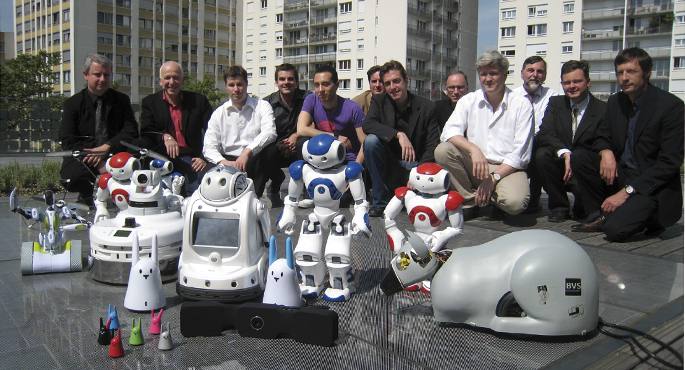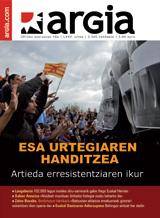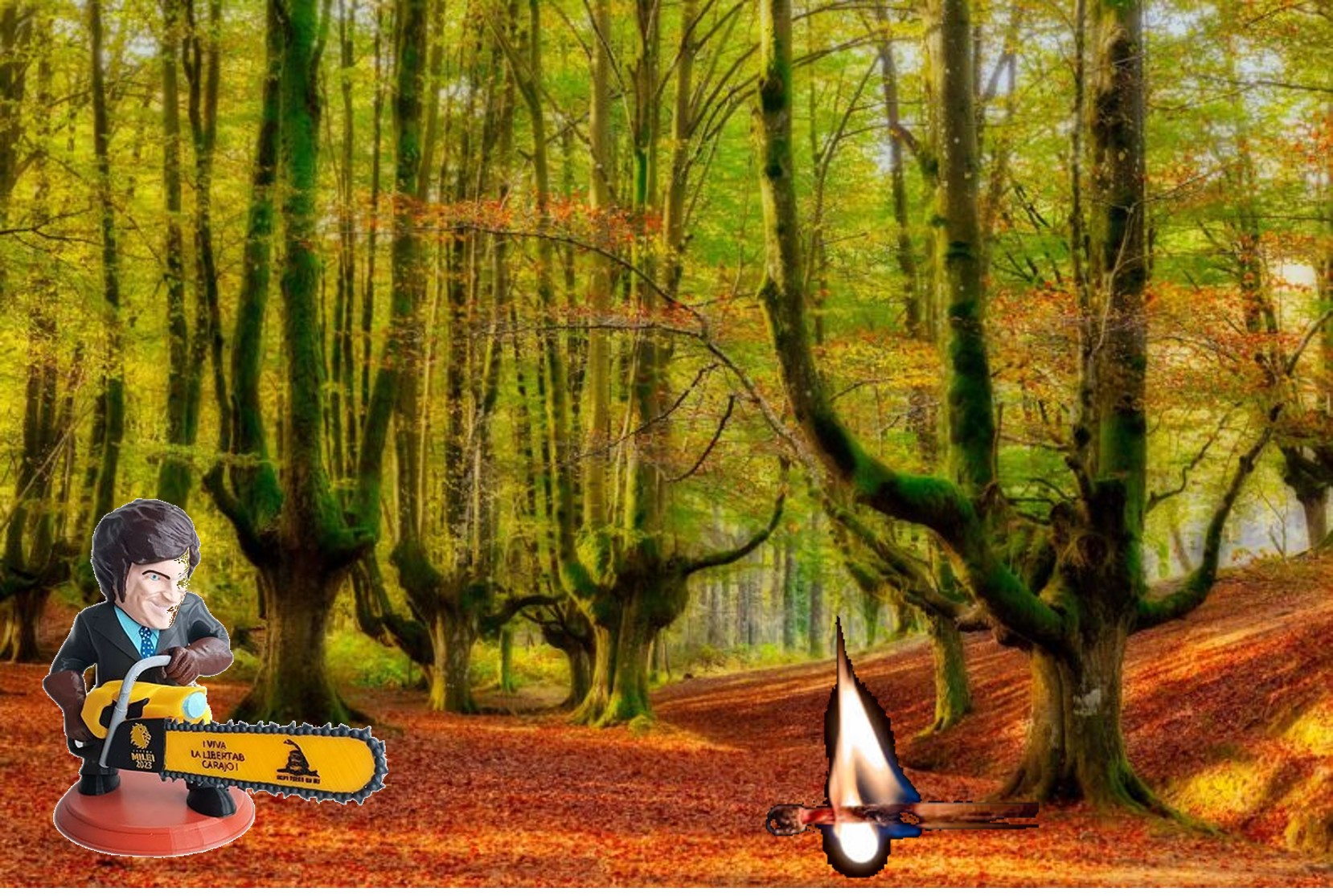They call “competitiveness” the worsening of the standard of living
- It has become a topic of both right-wing and left-wing leaders. We need more competitiveness. Our industries must be more competitive. An internationally competitive Basque Country. We must make Europe the most competitive and dynamic knowledge-based economy in the world. What's with the torn topic?

A geographer can serve to describe mountains, rivers and villages near or far away. It can also do a good service if it explains well located the important phenomena that are taking place in the world. Competitiveness or competitiveness, for example. This is what the French geographer, Gilles Ardinat, has done with his PhD thesis Géographie de la compétitivité, summarized in the journal Le Monde Diplomatique of October: Quand l’Europe impose are creed. And I'm sharing it, in mythe.
“During these years,” says Ardinat- our rulers have promoted the incorporation of the theories developed in the trade schools of the EE.UU. : cost control (‘cost competitiveness’), comparison and classification of countries as competing companies (benchmarking), country marketing (it is necessary to know how to ‘sell’ the territory), search for financing (capital raising)... As the use of these tools is expanding, competitiveness has become the measure of each country’s success in globalization.”
The first problem is that what is an idea of microeconomics, the competitiveness of products and companies, the use of policy and of countries is not, in the opinion of some, scientific. Economist Paul Krugman, Nobel Laureate, said: “Competitiveness in the field of national economies is a negligible word. This obsession with competitiveness is false and dangerous.”
Companies multiply profits and jobs by achieving better results than competitors. Although it can be thought that the complex being that is a country can hardly be surrounded by the characteristics of companies, Ardinat has denounced that the idea has prevailed in the new phase of commodification of the world: “It is assumed that the territories are in purchasing and selling conditions, and that companies can choose where to locate concurrently. Everything (contagion rights, debt securities, raw materials...) in a world that can be played on the stock market, investment compasses use competitiveness: it measures the results of each territory.”
This is how the famous rankings emerge. The CAV is in the X position in the competitiveness championship, Germany is in the lead, France is losing competitiveness... These lists are complemented by other indexes already published: wealth, survival, schooling rates, public debt note, imposed by large insurance companies to each country, etc. The siculusalts of what Krugman calls “competitive rankings industry.”
Most of these classifications draw the map of the world similarly. A competitive centre, consisting of North America, Europe and the Asian extreme, is dominated by a few Arab oil monarchies. Within this group, Germany, the Netherlands, the Nordic countries, the United States, Japan and Singapore form the hyper-competitive core. Around a rich and competitive world, the list of countries from an extensive periphery is growing until the periphery gradually becomes a marginalized and poor world.
Real name: ‘social dumping’
But what do we use these classifications for if they do not serve to make forecasts? Most countries considered to be competitive have low growth rates, high budget deficits, company relocations in foreign transactions, industrial flight. The most curious thing is that the growth of the world economy is mainly due to the peripheral countries.
Five years ago, Ireland, Iceland and Dubai were still considered models of competitiveness. Following the outbreak of the crisis 2007-2008, it is said that all three were over-speculated, lacking financial regulation, over-indebted. It's better understood if you're told that to complete the rankings, you're interrogated to senior positions in the big companies.
Competition is, however, the wonderful wizard of most of the world's rulers. The globalisation of the rich West means the abandonment of low added-value industries and the differentiation in highly skilled technologies, enterprises and jobs. So we'll get services that don't look at the price. In return, the backward countries will emerge from poverty brought by our old industries, those obsolete activities that must compete at low prices. We all win with globalization -- if it were true.
Germany shows Ardini the opposite: “It has gained competitiveness by freezing wages and implementing ‘social’ VAT, i.e. by increasing household consumption rates to reduce corporate contributions.” On the other hand, countries like China are pioneering computing and other innovative fields, which also undermine the paradigm.
On the pretext of improving competitiveness, Europe has imposed an increase in VAT, a fall in wages and a reduction in public budgets. Ardinat wants to get back to the concept of dumping that was once heard the most: to manipulate costs in order to get better prices than the enemy. China does dumping of many kinds: social with impressive working conditions, environmental, fiscal... You see that you want to do the same with the austerity policies that apply to Greece and to others, but dumping is so-called competitiveness.
In the name of the battle for competitiveness, politicians allow masters to reduce the cost of work. As for the relocation of companies, this battle is lost, they will always find cheaper labour places. In Europe, on the other hand, the labour market does manage to fatten the profits of capital. In this sense, it is not a territory or a nation that has been the winner, but a small minority.
Another collateral damage to this battle is becoming increasingly clear when it is observed that the pressure on the lives of many citizens has weakened the demand for consumer products. Next to the goats, the revenue that states get with VAT.
And what do the political leaders say? “Competitiveness – Ardinat has concluded – has been imposed by companies and international markets. And since the selected authorities cannot control them and adapt to their requests, both cannot. After all, to aim for competitiveness is to disguise the loss of power and sovereignty of national states, thus destroying the possibility of protecting citizenship through political activity.”
Bidali zure iritzi artikuluak iritzia@argia.eus helbide elektronikora
ARGIAk ez du zertan bat etorri artikuluen edukiarekin. Idatzien gehienezko luzera 4.500 karakterekoa da (espazioak barne). Idazkera aldetik gutxieneko zuzentasun bat beharrezkoa da: batetik, ARGIAk ezin du hartu zuzenketa sakona egiteko lanik; bestetik, egitekotan edukia nahi gabe aldatzeko arriskua dago. ARGIAk azaleko zuzenketak edo moldaketak egingo dizkie artikuluei, behar izanez gero.
“Even with all the shortcomings, the unions have done more for humanity than any other human organization that has ever existed. They have contributed more to dignity, honesty, education, collective well-being and human development than any other association of people.” ... [+]
Automatizazioaren eta abereen inguruan kuxkuxeatzen ari nintzela, ukuilu automatizatuen informazioa hasi naiz eskuratzen. Nire idazmahaiaren erosotasunetik idazten, gizakion kontsumorako modu masiboan esplotatzen ditugun abereen bizitzak nahiko penagarriak direla iruditzen zait,... [+]
Errepikatu nirekin: Sara Millerey. Ez dezagun ahaztu bere izena. Transfeminizidioaren biktima da Millerey: gorrototzaile transmisogino batek torturatu zuen, besoak moztu zizkion eta bizirik bota zuen ibaiertz batera. Bi orduko agoniaren ondoren hil zen.
Errazagoa da J.K... [+]
Zenbait urtetatik hona sarri entzuten dugun kontzeptua da zaurgarritasuna. Gaur gaurkoz, diskurtso politikoetan pertsona zaurgarriez aritzea ohikoa da. Seguru nago nik ere inoiz erabili dudala berba hori Bizilan.eus webgunean, eskubide laboralak eta prestazio sozialak azaltzeko... [+]
It seems possible to measure happiness. There are even those who insist on it. The UN is not very successful in maintaining world peace, but it shows in an annual report how such a quality is distributed across the planet. It is basically a list, staggered from country to... [+]
On Sunday, May 11, we have an appointment in the Plaza del Rekalde (Bilbao) to announce that all the people who live in Basque cities and towns have a census. This action is part of a broad campaign that promotes that no one living in our municipalities is without a census. In... [+]
Duela urtebete eskas Espainiako aireportuen sarea kudeatzen duen AENA enpresa publikoak iragarri zuen Loiuko aireportuko terminala handitu nahi duela. 2024an 7 milioi bidaiariren langatik gertu gelditu zen eta, handitzeak aurrera eginez gero, 2030. urtetik aurrera 13-14 milioi... [+]
Rearm Europe. Reindustrialize to defend Europe. This is the agenda that the political leaders of the European Union have been trying to promote lately, through the White Paper on European Defence, the BirArm Europe and the 2030 Availability plans. The excuses for the promotion... [+]
You may not know who Donald Berwick is, or why I mention him in the title of the article. The same is true, it is evident, for most of those who are participating in the current Health Pact. They don’t know what Berwick’s Triple Objective is, much less the Quadruple... [+]
The article La motosierra puede ser tentadora, written in recent days by the lawyer Larraitz Ugarte, has played an important role in a wide sector. It puts on the table some common situations within the public administration, including inefficiency, lack of responsibility and... [+]
Is it important to use a language correctly? To what extent is it so necessary to master grammar or to have a broad vocabulary? I’ve always heard the importance of language, but after thinking about it, I came to a conclusion. Thinking often involves this; reaching some... [+]
The other day I went to a place I hadn’t visited in a long time and I liked it so much. While I was there, I felt at ease and thought: this is my favorite place. Amulet, amulet, amulet; the word turns and turns on the way home. Curiosity led me to look for it in Elhuyar and it... [+]




















